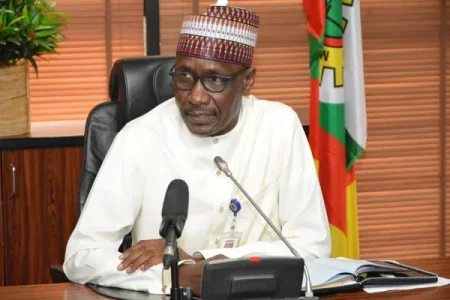
NNPC declares a state of emergency on crude oil production to boost output and reserves. OPEC projects a 23% increase in global energy demand by 2045. Challenges include bureaucratic delays and aging infrastructure. A balanced approach is needed for climate change mitigation and energy poverty reduction in developing nations.
Nigeria's state oil company, NNPC Ltd, has taken a dramatic step by declaring a state of emergency on crude oil production. This bold move aims to boost output and expand reserves in Africa's largest oil-producing nation.
NNPC's Group Chief Executive Officer, Mele Kyari, announced the decision at the 2024 Nigeria Oil and Gas Energy Week in Abuja. Kyari emphasized the urgency of the situation, stating, "We have declared war on the challenges affecting our crude oil production. War means war."
The company believes Nigeria can reach a production level of two million barrels per day without new infrastructure. However, bureaucratic delays and inefficiencies have hindered progress. The emergency declaration seeks to streamline processes and overcome these obstacles.
Long-term strategies include replacing aging pipelines and implementing a rig-sharing program with partners. These measures aim to modernize infrastructure and ensure consistent production capacity.
Meanwhile, OPEC Secretary-General Haitham Al Ghais presented a bullish outlook for global energy demand, projecting a 23% increase by 2045. He stressed the continued importance of oil and gas in the global energy mix, with oil expected to maintain a 30% share. Al Ghais cautioned against rushed "Net-Zero" strategies, arguing they may be unrealistic for developing nations. He advocated for a balanced approach to climate change mitigation and adaptation, particularly concerning climate finance and technology.
The OPEC chief also highlighted the persistent issue of energy poverty, with millions lacking access to basic energy services. He called for united global action to address this critical challenge.
As Nigeria grapples with its oil production challenges and the world faces complex energy transitions, the outcomes of these initiatives will have far-reaching implications for both national economies and global energy markets.




